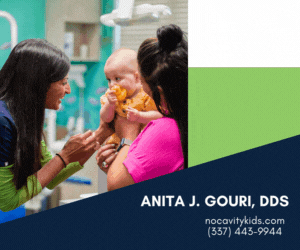September Is PCOS Awareness Month
What is PCOS?
Polycystic Ovarian Syndrome, or PCOS, is a very common problem for women. One in 10 women suffer from PCOS. According to Johns Hopkins Medicine, this condition causes women to produce an abnormal amount of male sex hormones, androgens, and small cysts on the ovaries. Symptoms include irregular menstrual cycles, weight gain – especially around the belly, acne, excessive hair growth, and infertility. Doctors aren’t sure what causes PCOS, although many women who have it are also insulin-resistant. They also think it may be hereditary, although that is not the case for me.
How is PCOS diagnosed and treated?
PCOS is usually diagnosed when an ultrasound shows that the patient has cysts on her ovaries. Doctors also look for the thickness of the lining of the uterus and may order blood tests to check for high hormone and androgen levels.
How doctors choose to treat PCOS depends on many factors. Before the type of treatment is decided, they look at how old the patient is, how severe the PCOS is, as well as her overall health. For women who want to pregnant, doctors may suggest dietary changes to help reduce glucose levels, which in turn will help the body to use insulin more efficiently, and hopefully help the patient to ovulate. Fertility medications may also be prescribed. If pregnancy is not the goal, doctors may prescribe birth control, diabetes medications, medication to treat symptoms, or even changes in diet and exercise. All of these can reduce insulin-resistance and hormone production.
I am one in 10.
I was diagnosed with PCOS at age 16. My doctor said that my ovaries looked like chocolate chip cookies on the ultrasound. That’s a lot of cysts. Then, I just knew it was causing my acne and my belly. I had no idea of the complications it would bring to my life as an adult. I was prescribed birth control when I was diagnosed, which helped considerably. As an adult with PCOS, I still – at almost 40 – struggle with acne breakouts. I struggled considerably with infertility. I am blessed to have a large family, but the steps it took to get there are unbelievable. I’ve had miscarriages attributed to PCOS. I still have to pluck hairs from places they shouldn’t grow. And even though I’ve recently lost a LOT of weight, my belly is still my “trouble” area. My hormones are checked regularly to make sure my symptoms stay in check.
I’ve waded through the muck of PCOS infertility. I’ve come out the other side, but many never get the joy of carrying their own child. Many have symptoms much worse than mine, and they need more symptomatic treatment such as waxing, electrolysis, and laser therapy. These things can be very expensive and painful.
Polycystic Ovarian Syndrome does not get enough attention. It affects far more women that most female conditions. Many women go undiagnosed and untreated because they don’t even know that their symptoms could be caused by an actual medical condition. Far too many women don’t know about PCOS or its symptoms. They don’t know that there is treatment and a life outside of what they are experiencing.
If you have symptoms
If you think you may have symptoms of PCOS, please call your gynecologist. It is a simple and quick diagnosis, and you can feel relief faster than you can imagine. Don’t let yourself believe that your symptoms are not related. It is so important to take care of your health. Polycystic Ovarian Syndrome is real, and real treatment exists! If you were considering speaking to your doctor, this is your sign.



















